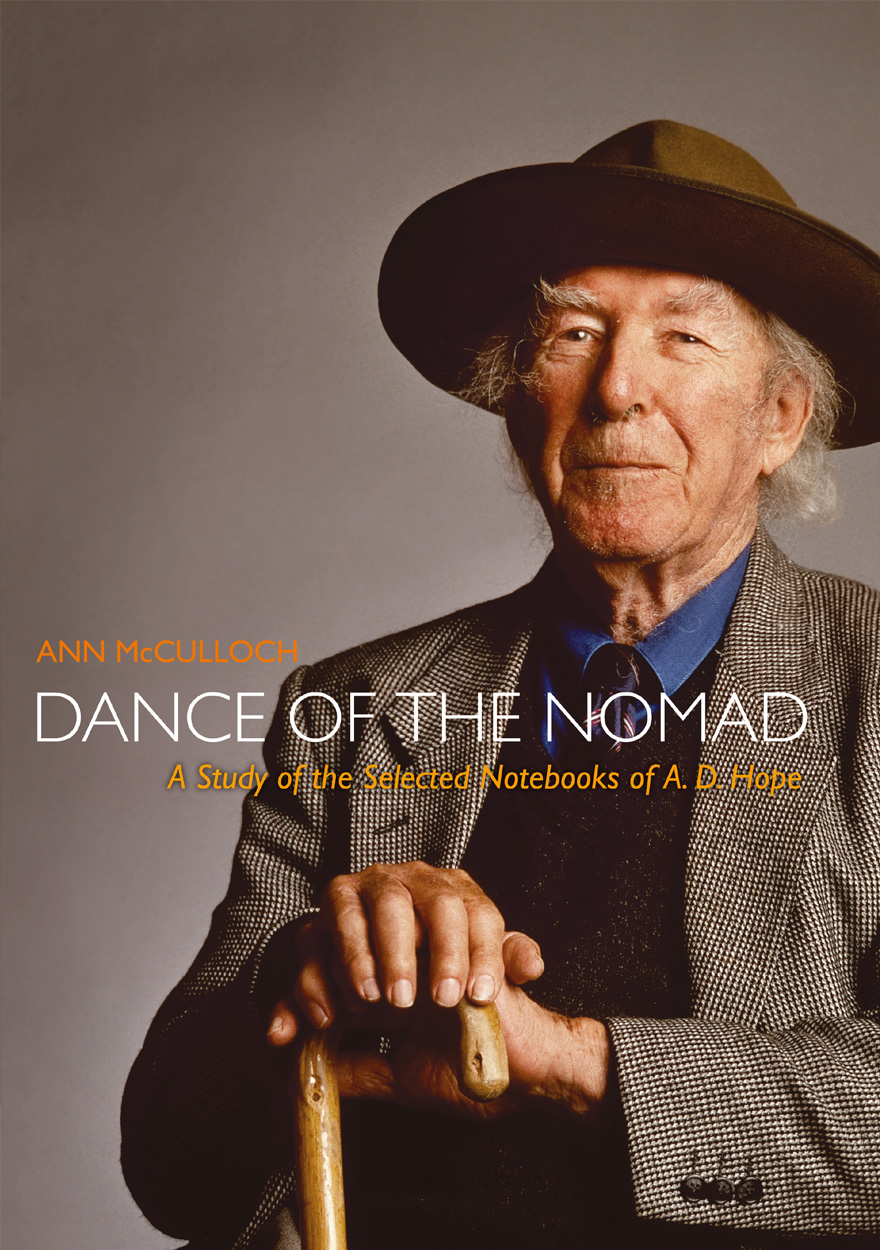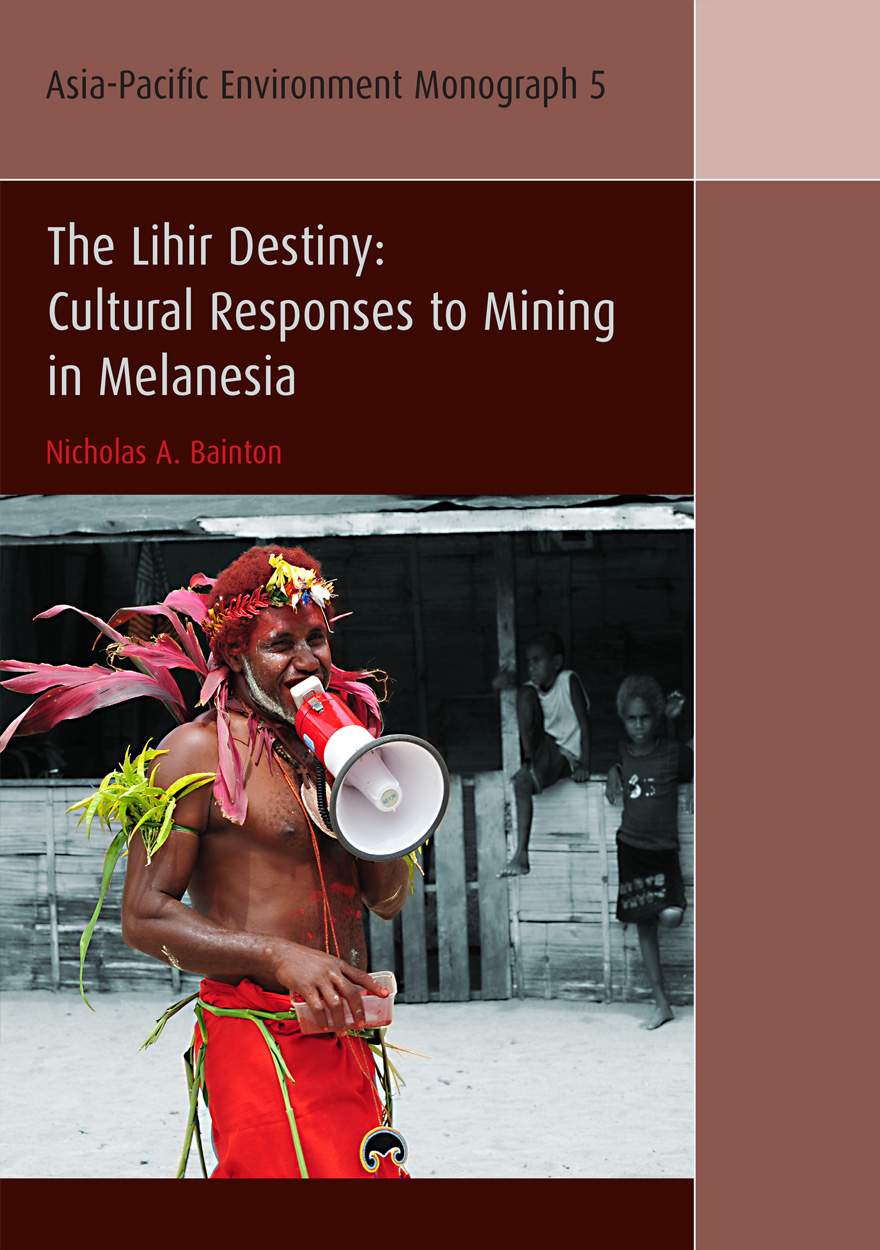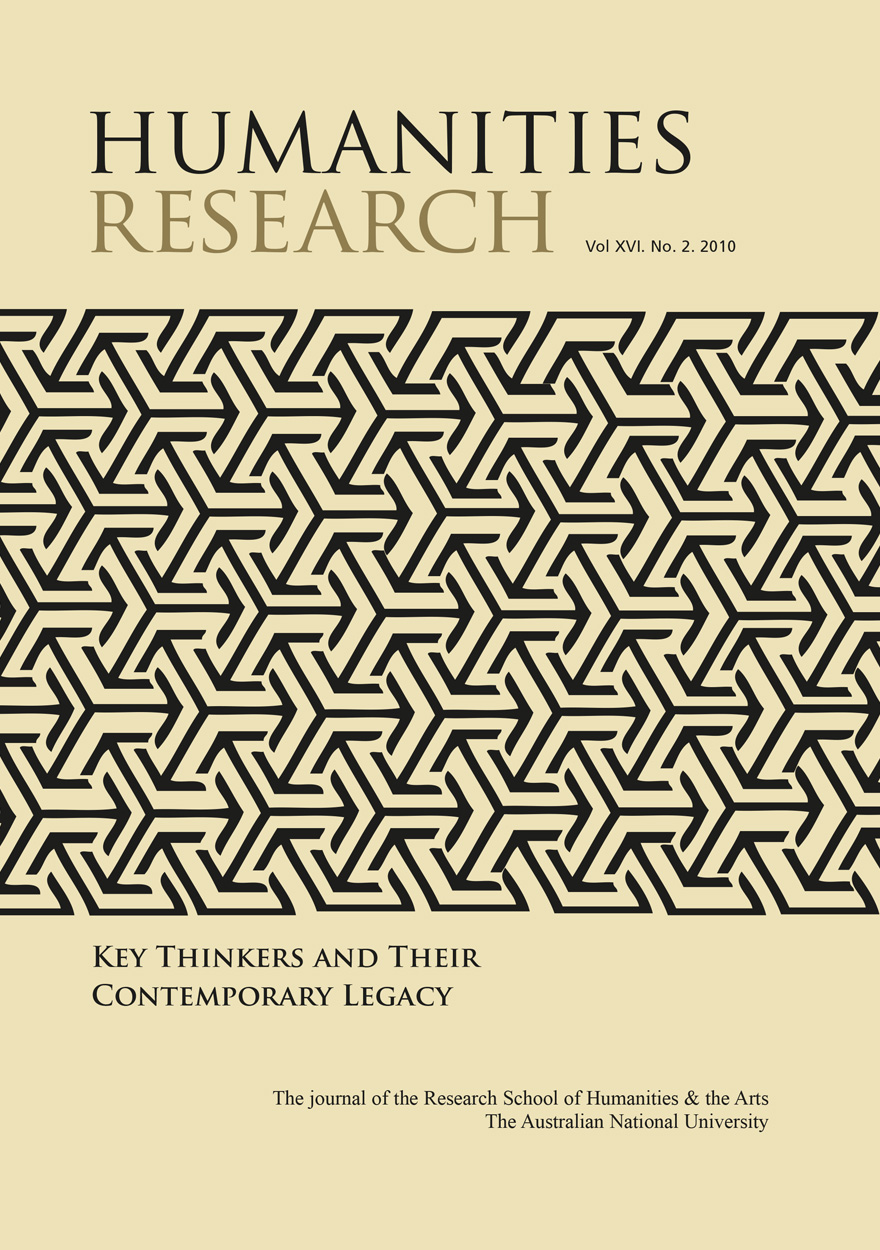Search titles
Displaying results 821 to 830 of 1156.

Dance of the Nomad »
A Study of the Selected Notebooks of A.D.Hope
Authored by: Ann McCulloch
Publication date: November 2010
The notebooks of A. D. Hope are a portrait of the contradictory essence of the poet’s intellect and character. Shot through with threads of self-awareness and revelation, Hope imbued his notebooks with irony and humour, forming them as a celebration of the joy and terror of human existence. Stripped of intimate revelation, the entries give witness to Hope’s view that art is a superior force in the creation of new being and values, and a guide for the conduct of our lives.
Seeking to find pathways through the maze of an intellectual life, this is a profound and timely contribution to Australia’s literary scholarship. Ann McCulloch’s analysis of this thematic selection of Hope’s notebooks reveals him to be relentless in his experimentation with ideas. Revealing the originality of his thinking and the astonishing range of his reading and interests, this edition is a testament to the intellect of one of Australia’s towering literary figures.

In the Eye of the Storm »
Jai Ram Reddy and the Politics of Postcolonial Fiji
Authored by: Brij V. Lal
Publication date: November 2010
To read this evocative book is to be thrust into a Fiji that has, for the moment, been snuffed out by military might: a Fiji of political parties, parliamentary politics, elections, manifestoes, campaigns, democractic defence of interests, party manoeuvres, and constitutional protection of rights and freedoms. It is a comprehensive and eloquent re-telling of the story of Fiji politics from independence in 1970 to 1999 through the perspective of Fiji’s greatest living statesman, Jai Ram Reddy, by one of the world’s most distinguished scholars of its history and politics.

Altered Ecologies »
Fire, climate and human influence on terrestrial landscapes
Edited by: S. Haberle, J. Stevenson, M. Prebble
Publication date: November 2010
Like a star chart this volume orientates the reader to the key issues and debates in Pacific and Australasian biogeography, palaeoecology and human ecology. A feature of this collection is the diversity of approaches ranging from interpretation of the biogeographic significance of plant and animal distributional patterns, pollen analysis from peats and lake sediments to discern Quaternary climate change, explanation of the patterns of faunal extinction events, the interplay of fire on landscape evolution, and models of the environmental consequences of human settlement patterns. The diversity of approaches, geographic scope and academic rigor are a fitting tribute to the enormous contributions of Geoff Hope. As made apparent in this volume, Hope pioneered multidisciplinary understanding of the history and impacts of human cultures in the Australia- Pacific region, arguably the globe’s premier model systems for understanding the consequences of human colonization on ecological systems. The distinguished scholars who have contributed to this volume also demonstrate Hope’s enduring contribution as an inspirational research leader, collaborator and mentor. Terra Australis leave no doubt that history matters, not only for land management, but more importantly, in alerting settler and indigenous societies alike to their past ecological impacts and future environmental trajectories.

Australian Humanities Review: Issue 49, 2010 »
Edited by: Monique Rooney, Russell Smith
Publication date: November 2010
Australian Humanities Review is a peer-reviewed interdisciplinary journal featuring articles, essays and reviews focusing on a wide array of topics related to literature, culture, history and politics.
Download for free
Not available for purchase

Facing Asia »
A History of the Colombo Plan
Authored by: Daniel Oakman
Publication date: October 2010
‘No nation can escape its geography’, warned Percy Spender, Australia’s Minister for External Affairs, in 1950. With the immediate turmoil of World War II over, communism and decolonisation had ended any possibility that Asia could continue to be ignored by Australia. In the early 1950s, Australia embarked on its most ambitious attempt to engage with Asia: the Colombo Plan. This book examines the public and private agendas behind Australia’s foreign aid diplomacy and reveals the strategic, political and cultural aims that drove the Colombo Plan. It examines the legacy of WWII, how foreign aid was seen as crucial to achieving regional security, how the plan was sold to Australian and Asian audiences, and the changing nature of Australia’s relationship with Britain and the United States. Above all this is the question of how Australia sought to project itself into the region, and how Asia was introduced into the Australian consciousness. In answering these questions, this book tells the story of how an insular society, deeply scarred by the turbulence of war, chose to face its regional future.

The Lihir Destiny »
Cultural Responses to Mining in Melanesia
Authored by: Nicholas A. Bainton
Publication date: October 2010
The people of the Lihir Islands in Papua New Guinea have long held visions of a prosperous new future, often referred to by local leaders as the ‘Lihir Destiny’. When large-scale gold mining activities commenced on the main island of Lihir in 1995, many hoped that this new world had finally arrived. The Lihir Destiny provides a nuanced account of the social structural and cultural transformations engendered by large-scale resource extraction. Tracing the history of Lihirian engagement with outside forces, from the colonial period through to recent mining activities, this book brings new light to bear on the bigger question of what ‘development’ means in contemporary Melanesia. The Lihir Destiny explores how Lihirian leaders devised future plans for a cultural revolution based upon the maximisation of mining activities and the influential philosophies of the Personal Viability movement. However, reaching the ‘Lihir Destiny’ is no simple affair, and many Lihirians find themselves negotiating divergent formulations of culture, sociality and economic engagement. The Lihir Destiny will appeal to readers interested in the social impacts of large-scale resource development, the processes of cultural continuity and change and the ways in which modernity is configured in local terms.

East Asia Forum Quarterly: Volume 2, Number 4, 2010 »
Publication date: October 2010
East Asia Forum Quarterly grew out of East Asia Forum (EAF) online, which has developed a reputation for providing a platform for the best in Asian analysis, research and policy comment on the Asia Pacific region in world affairs. EAFQ aims to provide a further window onto research in the leading research institutes in Asia and to provide expert comment on current developments within the region. The East Asia Forum Quarterly, like East Asia Forum online, is an initiative of the East Asia Forum (EAF) and its host organisation, the East Asian Bureau of Economic Research (EABER) in the Crawford School of Economics and Government in the College of Asia & the Pacific at The Australian National University.
Download for free
Not available for purchase

The Australian National University School of Art: A history of the first 65 years »
Authored by: Michael Agostino
Publication date: October 2010
The ANU School of Art has built an international reputation as a leader in visual arts, attracting staff and students from around Australia and the world. it has an active exhibition program; regular visits from distinguished national and international artists; overseas student exchange; open art access classes and co-operative arrangements with many other areas of ANU research and teaching. This volume presents the history of the ANU School of Art, from its humble beginnings as part of the Canberra Technical College in Kingston, to its evolution to stand on the world stage as part of one of Australia's top ranked universities playing an important role in the teaching of research of Australian visual arts, crafts and design.
Hard copies of this book are available through the ANU School of Art.
Download for free
Not available for purchase

Medical Student Journal of Australia: Volume Two, Issue 1 »
Publication date: October 2010
The Medical Student Journal of Australia provides the medical school of The Australian National University with a platform for medical students to publish their work in a peer-reviewed journal, communicating the results of medical and health research information clearly, accurately and with appropriate discussion of any limitations or potential bias.
Download for free
Not available for purchase

Humanities Research: Volume XVI. No. 2. 2010 »
Key Thinkers and Their Contemporary Legacy
Edited by: Ned Curthoys
Publication date: October 2010
Humanities Research is an internationally peer-reviewed journal published by the Research School of Humanities at The Australian National University. The Research School of Humanities came into existence in January 2007 and consists of the Humanities Research Centre, Centre for Cross-Cultural Research, National Europe Centre and Australian National Dictionary Centre. Launched in 1997, issues are thematic with guest editors and address important and timely topics across all branches of the humanities.
Download for free
Not available for purchase



